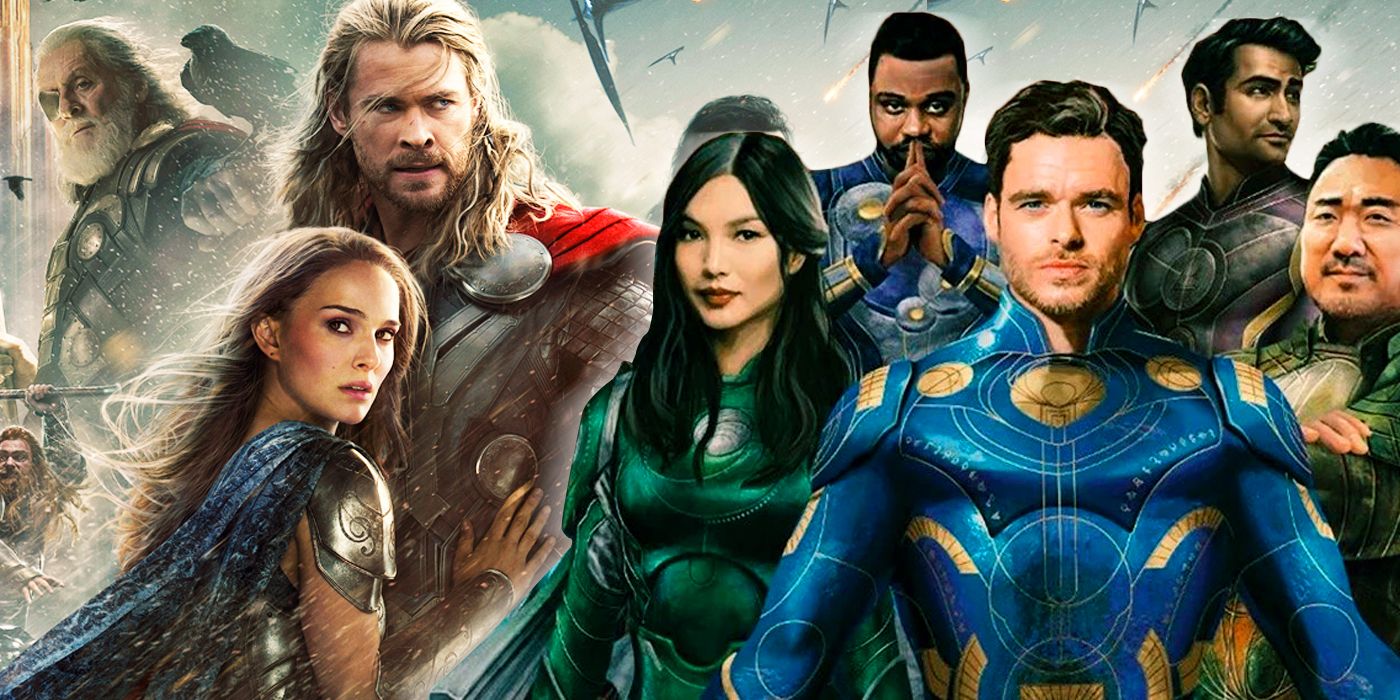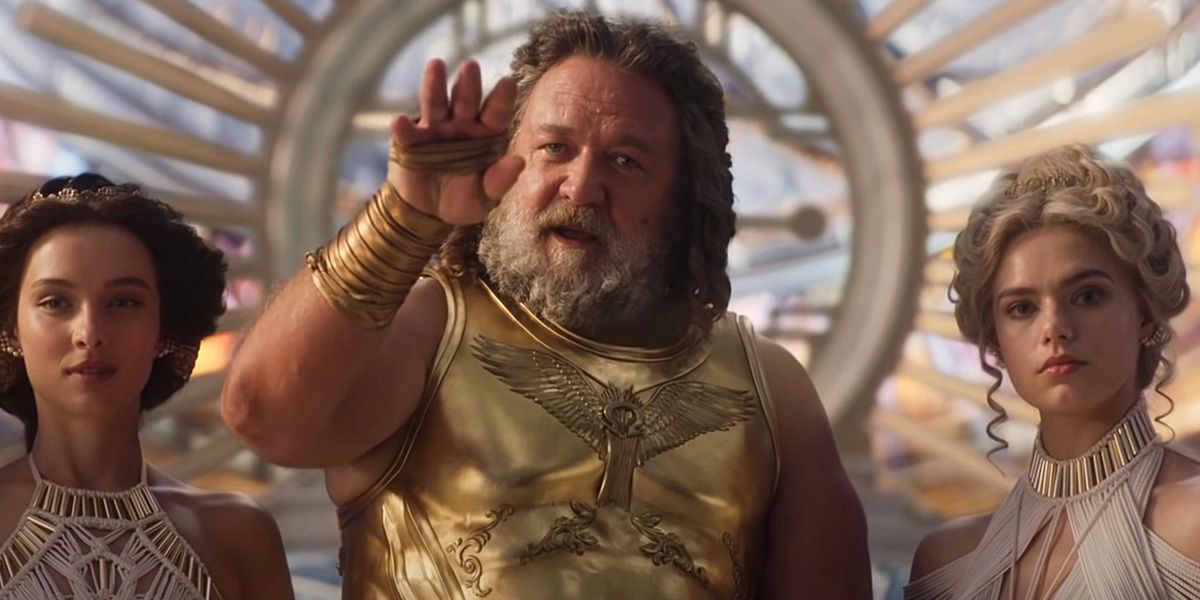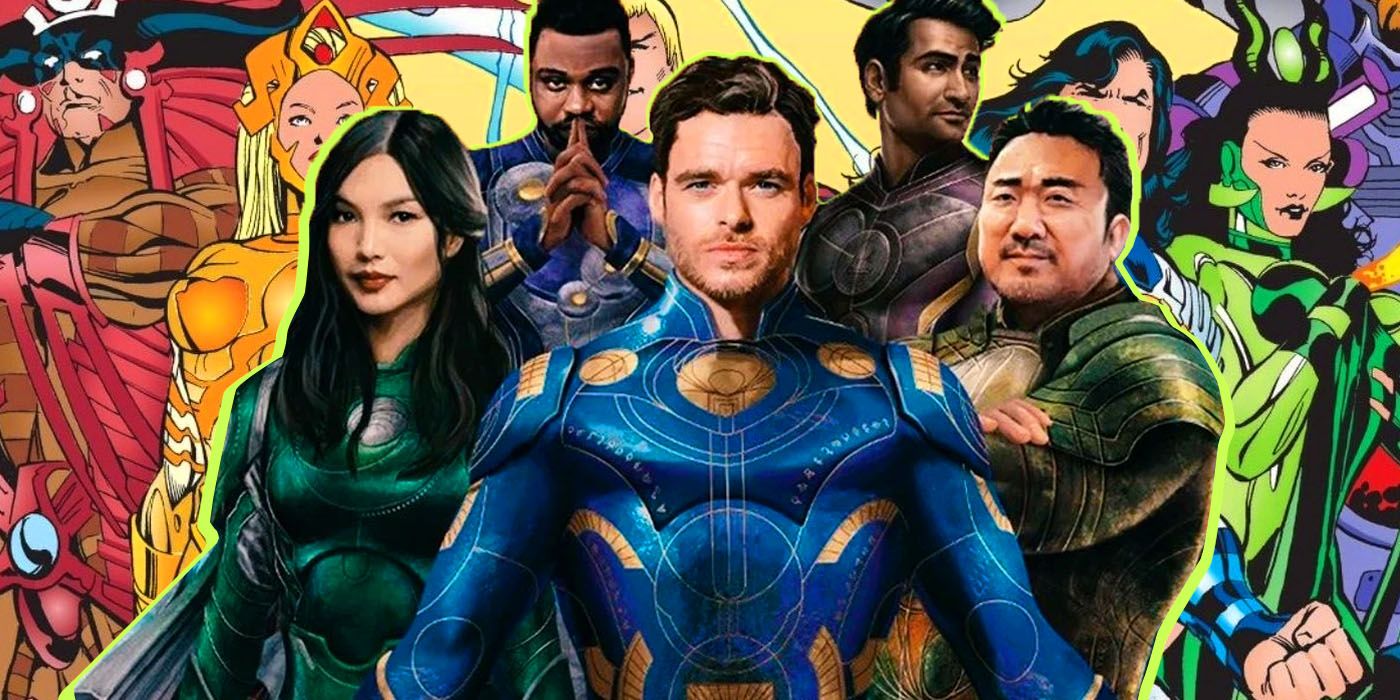The following contains spoilers for Thor: Love and Thunder, now in theaters.
One of the most intriguing aspects of Marvel's Eternals was how these alien beings created by the Celestials turned out to be entities mankind interpreted as gods, worshipping them for centuries. It gave them importance in the Marvel Cinematic Universe while creating that mystique over how gods rebuked those who bowed to them, leaving fans wondering why they sat out big wars.
Eventually, they came to the fore to stop the rise of Tiamut, rebel against Arishem, and save the planet. This cemented the Eternals as benevolent gods, in a sense, which kickstarted Arishem's punishment. However, while it seemed like the MCU had ample reason for revering the Eternals and that Gorr might come after them, Thor: Love and Thunder proved the god status of these beings is totally irrelevant.
The Eternals inspired heroic mythological figures across various cultures: for example, Icarus is the boy who flew too close to the sun, Ajax is the Greek warrior from The Iliad, and Gilgamesh is from the Epic of Gilgamesh. But in the case of Phastos, Thena, and Makkari, they're tied to Greco-Roman deities: Hephaestus, Athena, and Mercury. The Eternals' closing credits, which juxtaposed the actors next to artistic representations of their characters, cemented this connection.
But in Zeus' Omnipotence City in Love and Thunder, Carmen Foon is credited as Minerva, the Roman equivalent of Athena, the Greek Goddess of War. Thus, one has to wonder if the MCU has a Minerva, as well as Angelina Jolie's Thena, and also an Athena (who'd probably be in Zeus' Olympian crew as well). Admittedly, it's pretty confusing, but this does suggest all three sects exist across various eras. Interestingly, there were Celestials in Omnipotence City as well, so they may have designed and named their Eternals -- robots on an assembly line -- based on Greek and Roman gods, which resulted in Earthlings making up mythological stories once these beings hit the planet. It would actually sync up spiritually with how Thor just decided to take influence and model himself after the lightning-throwing Zeus.
This means that while fans may wrack their minds, making up theories and seeking out conspiracies, the writers and creatives at Marvel Studios aren't thinking too hard about it. After all, it has been simplified already with the MCU pitting Asgardians as highly-evolved aliens. Given Love and Thunder had a God of Bao buns and a Kronan rock god for kicks in Zeus' chamber, it's clear that Marvel's having fun. If this pantheon was really to be taken seriously, then Bastet (the Black Panther god) wouldn't have just been chilling while Zeus plotted an orgy and wanted them to wait out Gorr's rampage.
Still, some questions will linger regarding Moon Knight's gods, who seem to be more mystical and truly, gods compared to what was seen in Omnipotence City. Ultimately, though, the MCU's mixing and matching, throwing in Easter eggs and nods to different properties while crafting comedy to balance out all the heavy action. This is further evidenced by Marvel contemplating using Satan as well when the MCU hasn't even defined the Christian depictions of Heaven and Hell. Fans must remember these movies do have plot holes and continuity errors that may never be addressed, so it's best to kick back and enjoy these higher powers, whether real or fake, hashing it out with Marvel's iconic heroes.
See how the god status of the Eternals is thrown aside in Thor: Love and Thunder, now in theaters.



